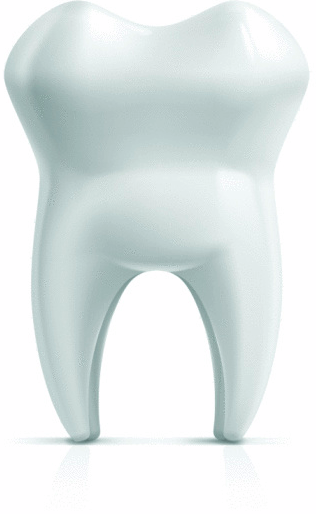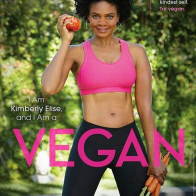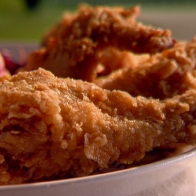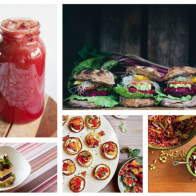 My own story reads like a scene from a dental horror flick: After one year as a brushing-twice-a-day raw vegan, I found myself propped back in the dentist chair, listening to the hygienist tally up the 16 cavities that had suddenly appeared in my mouth.
My own story reads like a scene from a dental horror flick: After one year as a brushing-twice-a-day raw vegan, I found myself propped back in the dentist chair, listening to the hygienist tally up the 16 cavities that had suddenly appeared in my mouth.
I couldn’t blame old age; I was still in my teens. I couldn’t blame a change in oral hygiene; if anything, I’d become more diligent about flossing. And I couldn’t blame my previous diet—because I’d only had one other cavity in my whole life, even when eating refined sugar and other tooth-wrecking monstrosities. The only change in my lifestyle was when I became a raw vegan.
Seven years later, my mouth is in good shape again, but my initial experience was far from unique. Dental woes are the proverbial elephant in the raw-food room—the one health issue that frequently declines rather than improves on an uncooked diet. This is apparent not just anecdotally, but also scientifically: Of the sparse studies conducted on raw foodists, most have shown raw vegans to be amazingly prone to dental damage, experiencing almost twice as much severe erosion as the rest of the population.
Fortunately, eating raw doesn’t have to be a one-way ticket to Dentureville. Taking some precautions and ensuring adequate nutrition can help you to keep your pearly whites both pearly and white, without forgoing the other perks brought by a raw food diet.
The Fantastic Trio: Vitamins K2, D, and A
Calcium gets lauded as a dental superstar, but it won’t do diddly squat if your body can’t deposit it in the right places. That’s where the fat-soluble vitamins K2, D, and A come into play. Vitamin K2 is crucial for helping the calcium you eat to end up back in your teeth; vitamin D improves intestinal absorption of calcium; and vitamin A plays a key role in bone and tooth formation. Together, these nutrients work synergistically to decay-proof your mouth—and their combined effects can be powerful enough to actually reverse cavities and erosion.
So where do you get these critical nutrients?
- Vitamin K2: This sucker is hard to come by if you’re a vegan. The best source is natto, a type of fermented soy product. But if you’re dedicated to raw or can’t stomach globs of chunky, slimy beans (I guess it’s an acquired taste), the only other edible options are hard cheeses, egg yolks, grass-fed butter, and organ meats. If these foods are also a no-go on your menu, opt for a supplement. Even if you’re not a fan of pills (I’m not either), this is one pill you will be glad you took. After speaking with dozens of people who’ve turned their dental health around by supplementing with K2, I’m convinced that this is the missing piece in the dental health paradox for raw foodists.
- Vitamin D: Sunshine, sunshine, sunshine. If you’re lucky enough to live in the tropics, basking in the sun everyday should be adequate enough to keep your vitamin D levels high. But if you live at a far northern latitude, your body might not be making enough vitamin D for optimal health—especially during the winter. So unless you’re cozied up near the equator, a vitamin D supplement (preferably in the form of D3 rather than D2) is your best bet.
- Vitamin A: Although the two are commonly confused, beta carotene—the stuff that gives carrots and sweet potatoes their lovely blushed-orange hue—is not the same thing as vitamin A, which is only found in animal foods. Beta carotene is a provitamin, which means that your body has to convert it before it can really be used. Although most people have no problem making that conversion (and can therefore get plenty of this nutrient from fruits and vegetables), some people—including children and anyone with thyroid disorders or diabetes—may need a source of pre-formed vitamin A in order to stay healthy. Sources of beta carotene include orange-colored fruits and vegetables as well as leafy greens; eating these foods with a source of fat increases absorption significantly. Sources of vitamin A in the form of retinol include egg yolks, milk, and liver.
Protect Your Teeth From an Acid Bath
Apart from nutrition, direct exposure to acids can harm your chompers. Vinegar is a common, but highly acidic, raw condiment; and even when ripe, some fruits like grapes, berries, tomatoes, apples, and citrus have a very low pH—making them capable of eroding enamel the moment they hit your teeth. Try keeping these foods to a minimum, especially if you notice tooth sensitivity after eating them. But if you do end up chowing down on some not-quite-ripe oranges or dousing a salad with vinegar, you can lessen the damage by doing the following:
Rinse your mouth out with water immediately after eating to clear away the residue. If possible, try swishing with a water/baking soda mixture—the high pH of the baking soda will neutralize the acids in your mouth.
Avoid brushing your teeth following an acidic meal. It sounds counterintuitive, but this is important. Until your saliva has a chance to work its remineralizing magic, your enamel will be softer than usual—and scrubbing with harsh bristles will only cause more erosion.
Fresh is Best
Dried fruit and dehydrated treats can spell trouble for dental health, especially if they make up a large portion of your diet. Dried fruit is particularly troublesome because it gets crammed in the hard-to-reach spots between your teeth, providing a sugary feast for bacteria—and creating the perfect habitat where cavities may form. As much as possible, stick with fresh, water-rich foods, and be sure to floss after eating anything dry and sticky.
Up the Greens
Green leafy vegetables are typically the highest source of enamel-building minerals in a raw food diet, and skimping on them can lead to a major dental health crash once your body’s reserves dip too low. Don’t be fooled by the short-term success of folks attempting strict fruitarianism—in the long haul, good teeth are the exception rather than the rule on such a diet, and greens play a vital role in covering your mineral bases. Darker vegetables like kale and chard tend to be richer in nutrients than light-colored ones like iceberg lettuce; and eating your greens with a source of fat (such as avocado) can boost your body’s absorption of the nutritional goodness.
Don’t Forgo Hygiene
Just because you’re eating natural foods doesn’t mean that you should toss your floss and toothbrush by the wayside. Even with a good diet, dental hygiene can greatly improve your odds of keeping a bright, healthy smile—and regular dentist visits can help to scrub away the staining that sometimes occurs from eating brightly colored fruits and vegetables.
If you’re a raw foodist, you already know how important an asset your mouth is. Don’t wait until you’re experiencing problems (or staring down a mountain of dental bills) to take action: Be proactive, feed your teeth the nutrients they need, and then enjoy the benefits of raw foods without worrying about the future of your oral health.
Denise Minger writes about Raw Food on her blog Raw Food SOS!
Check it out!







Awesome post. I spent my childhood without any tooth problems, so it’s helpful to know how to continue avoiding them. Thank you!
Hi there, great article.
I’d love to know your opinion on eating tahini/peanut butter with fruit. I often eat peanut butter with apples and tahini with bananas. What do you think this does to teeth? I’m not sure if it’s acidic, but it is sticky!
Thanks for any info.
Thank you for the info. Can you say something about the daily/weekly quantities of these teeth building foods?
Great post, i brush almost religiously but have had so many cavities I could have bought a small car for the same money…
First of all vitamin K can be converted into K2 by animals that don’t eat meat and are not made to eat meat. Here are fruits that contain vitamin K:
http://www.ptinr.com/vitamin-k-facet-search?tid=1214&tid_1=All
Here are vegetables that contain vitamin K:
http://www.ptinr.com/vitamin-k-facet-search?tid=1213&tid_1=All
Not all vegetables are safe, anything that causes toxemia to the blood is unsafe. Toxins are substances treated as poisons by your body that irritate the system. Caffeine from coffee and tea; nicotine from tobacco; uric acid from meat, fish and poultry; mustard oil from onions and garlic; allicin from garlic; oxalic acid from spinach and beet greens; and phytic acid from wheat are a few examples. I use to have hypothyroidism, but when I stopped eating animal products my thyroid became regular and healthy. My vision and other senses have even improved. So eating meat actually causes thyroid problems. Here is more about why meat is such a problem to your body. They are pretty short. To learn more about the specifics you should check out the articles he points out.
http://nutritionfacts.org/video/cancer-proofing-mutation/
http://nutritionfacts.org/video/the-answer-to-the-pritikin-puzzle/
Some people try vegan or vegetarian and they can’t take it. Some get sick or sickly if they continue. Some have done permanent damage. But, I’m not saying vegetarian is bad, I am saying it is bad for some people. Not everyone converts K1 to K2 very well and there are studies to back that up. Vegan for those people could be a death sentence. Some vegetarians eat a lot of bread and pasta, because vegetables just don’t fill you up. They may have gluten intolerance and inflamed intestines and can’t absorb nutrients anymore.
Most of the studies on meat don’t use free range meat as their basis.
I cannot imagine how you came to the conclusion that Vitamin K2 may be a problem beeing vegan or vegetarian.
Is the english wiki soooo different from the german one?
65µg (which is the daily minimum for a female) of Vitamin K1 is in
15 g green onion
25 g brussels sprouts
400 g mushrooms
500 g Strawberries
K2 will be made by a happy colon…
So perhaps: green onion onto everything and more kale may be the way to go…
Now that you’ve done a lot of research on the Vitamins A D and K2 – do you know, why you had a lack in those? Did you miss out the foods which contain them or do you think one needs more than the recommended amounts? Perhaps green onion on everything is not the solution?
Best
The big problem is eating dried fruit which is a very highly concentrated source of sugar, Dates are the worst thing imaginable for your teeth as they contain 70-80% sucrose by weight. Fresh fruits are much less of a problem (chimpanzees don’t get tooth decay).
Hi inminorworld
” K2 will be made by a happy colon…”
yes, in the large intestine. But it can only be absorbed at the small intestine. So if you would like to get yur own K2-Mk4 you will have to behave like other primates…and eat your own feces. Bueno Apetito!
http://www.ncbi.nlm.nih.gov/pubmed/8198105
I’m not sure, if the colon-absorbtion-issue is decided yet…
Eating poo may not be necessary.
But the amount if vegans that report teeth-problems makes me wonder as well…
Perhaps other people (non-vegans) just do not talk about this, because they think it’s normal to have cavities…
Does anyone know, if vegans have MORE issues with their teeth than vegetarians or omnivores?
http://www.ncbi.nlm.nih.gov/pubmed/9831783
First off I want to recommend an amazing dental blog I have come across, in my similar search for holistic dental solutions. Vegan diets have cleansing benefits. Fresh fruits are very helpful in dental Nightmares.
What is the name of the blog please? ? 🙂
http://www.oralanswers.com/is-fruit-good-or-bad-for-your-teeth-it-depends/
Nearly all the problems seem to be due to ‘grazing” all day or eating dried fruit.
Wold chimpanzees don’t get tooth decay despite eating a fruit based diet and never brushing or flossing.
Read this from Denise, too:
“Actually, animals do suffer from tooth decay and cavities, albeit not at the rate most humans do. Skeletons of dead chimpanzees in the wild, as well as examinations of live ones, frequently reveal cavities, broken or chipped teeth, decay, and other signs severe wear. Not to mention some pretty gnarly staining. Eating raw does not make you immune to dental problems. Not to mention, many of us are coming to raw with compromised health and not-so-perfect genes, so we’re already at a disadvantage to other creatures who’ve had a lifetime of good nutrition.”
http://rawfoodsos.com/2010/01/24/dental-drama-tooth-problems-on-the-raw-diet-part-1/
BTW, Gorillas are eating 17% starch only, itäs mostly a fat diet: they are basically converting most of their food into free fatty acids with the the help of their microbiom,
So I can’t brush after my morning coffee then?
Christian: better to wait for an hour or so or brush first thing in the mornnig. The aAcid in the coffee looses your enamel and using the brush immediately afterwards will remove some of it. After an hour or the salive will remineralize the enamel again,
That’s the problem when eating lot of fruits all day long, your enamel will never have the chance to remineralize.